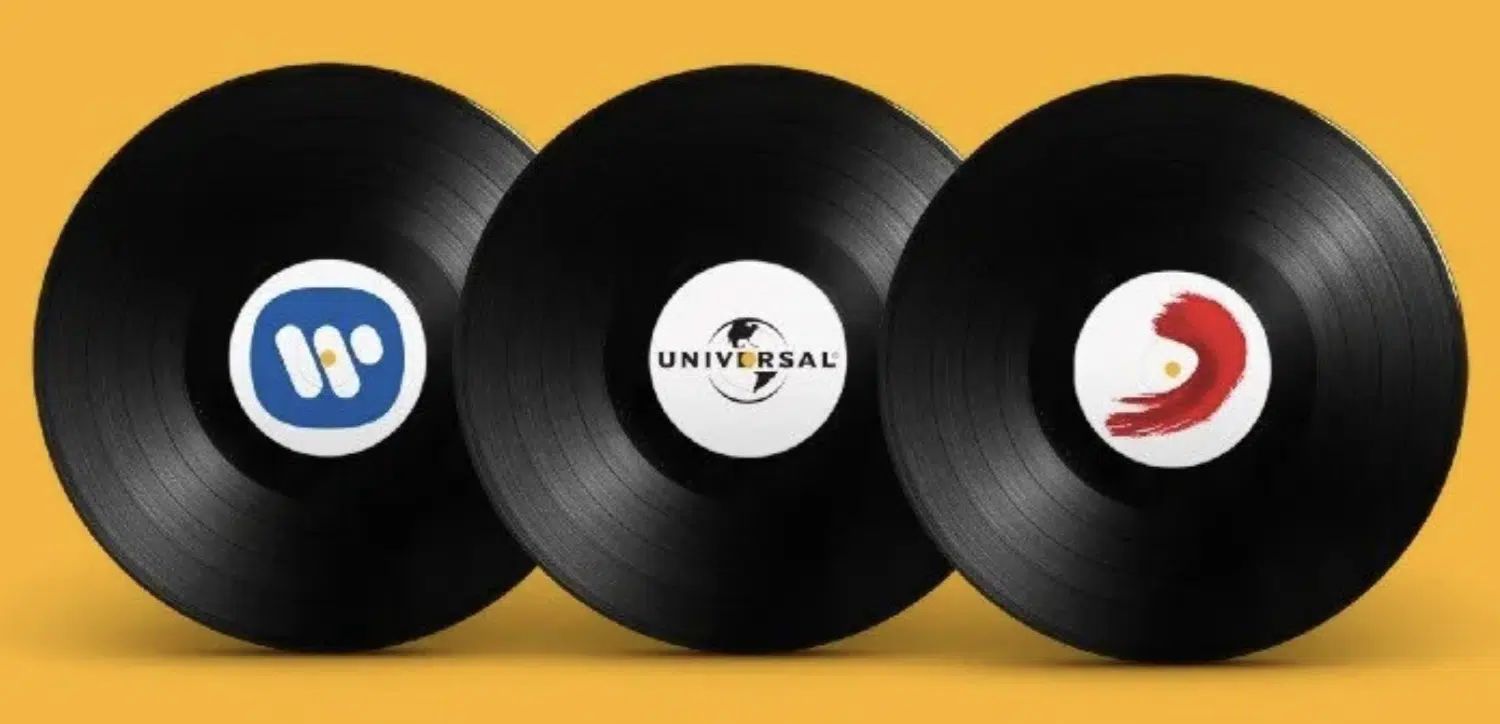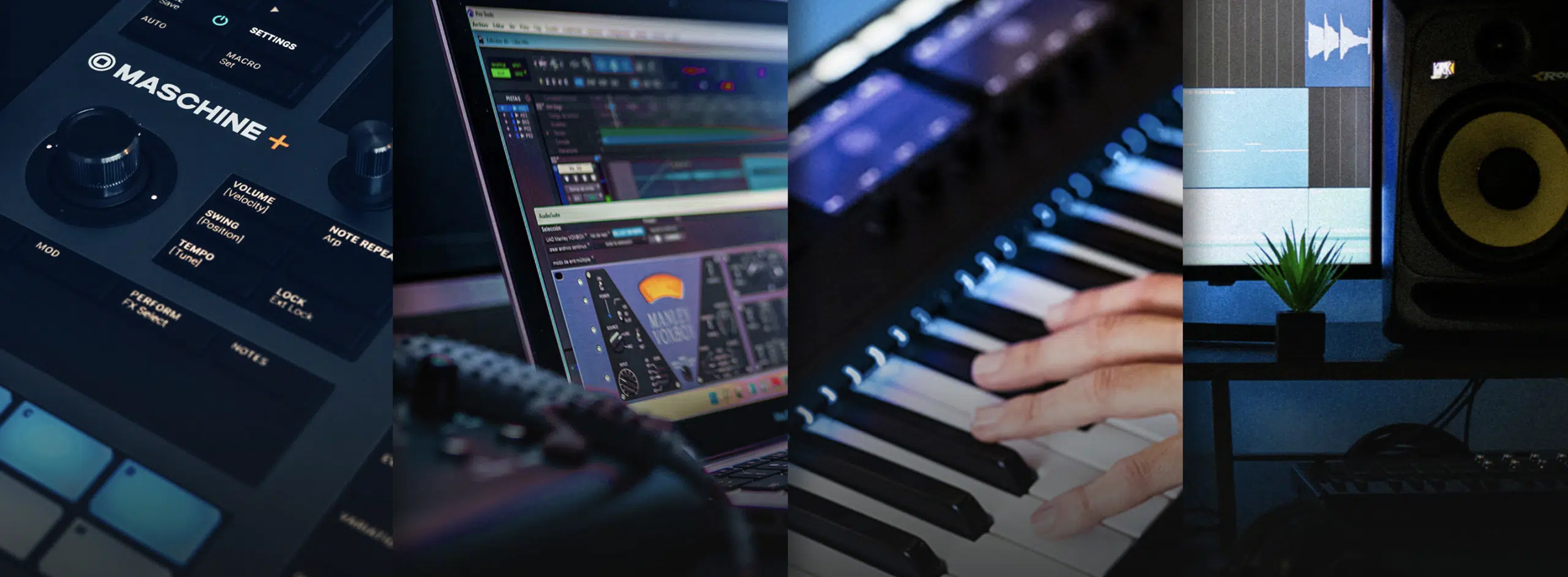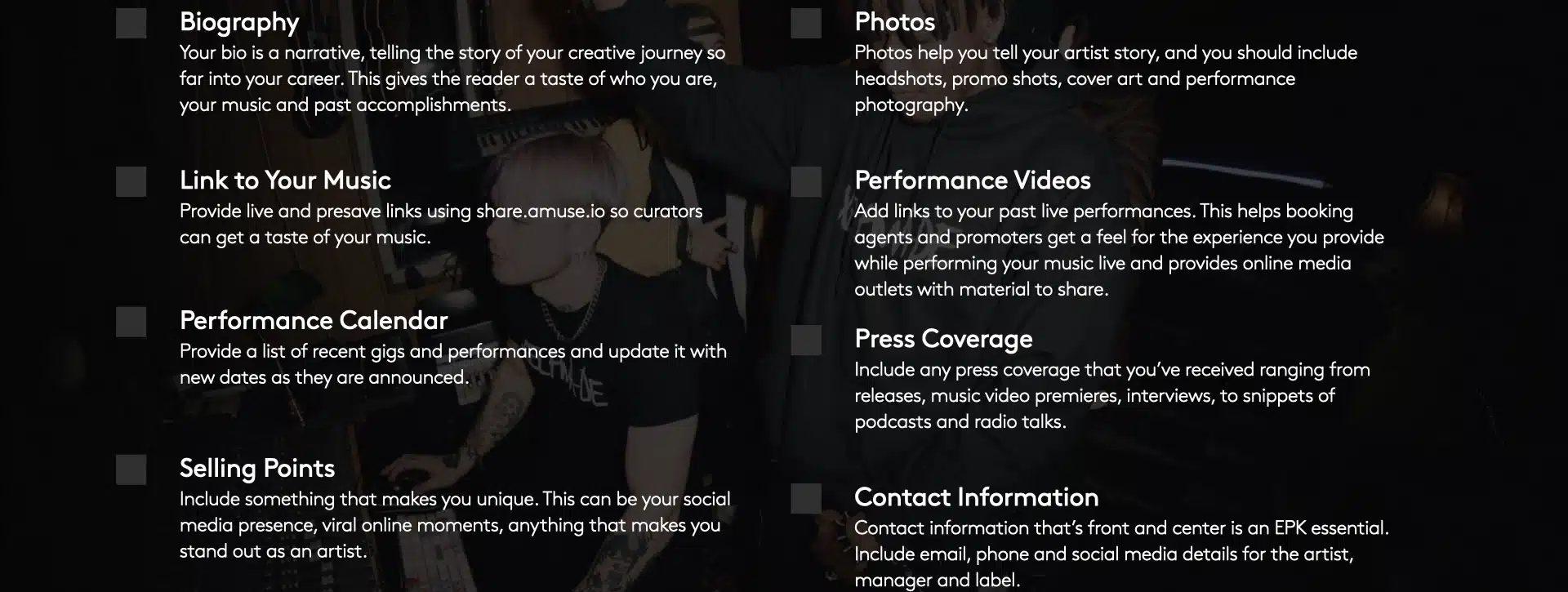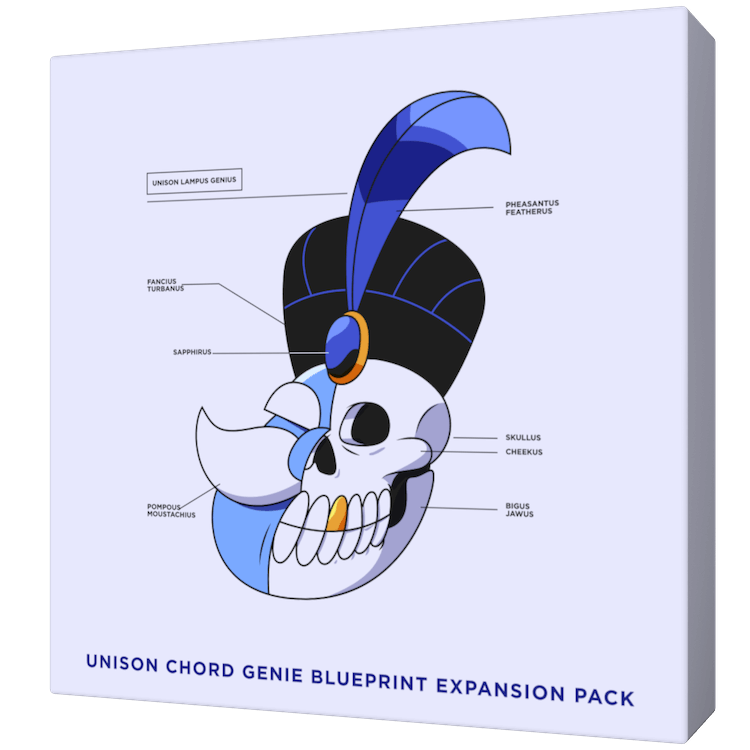Finding music industry jobs that actually align with your skills and passions can be super hard.
It can feel like you’re stumbling through a maze, filled with various paths but no clear direction on which one to take.
Plus, the music industry is highly competitive and constantly evolving, which means staying updated, educated, and versatile is key.
So, as a music producer, it’s important to know all about the latest trends, technologies, and the business side of music to ensure your talents find the right stage.
This way, you can find music industry jobs that are perfect for you.
That’s why, in today’s article, we’re breaking down:
- The different job types within the music industry ✓
- How to become a record label executive ✓
- The skills needed for music producer careers ✓
- The technical expertise required for an audio engineer ✓
- The importance of digital marketing in music ✓
- Data analysis in the music business ✓
- Utilizing job boards and LinkedIn effectively ✓
- Building a strong online presence ✓
- Creating an engaging portfolio ✓
- Networking within the music community ✓
- Much more about music industry jobs & how to search for them ✓
You’ll have a strong understanding of finding and securing music industry jobs so you can dominate the music business confidently.
Plus, make smart decisions about your music career path and which job type is right for you given your previous experience and what you’re seeking.
You’ll know how to showcase your skills effectively, connect with key industry players, and position yourself as a professional ready to take over.
So, let’s dive in…
Table of Contents
Exciting Music Industry Jobs for Producers
Breaking into the music industry requires awareness of the different roles/job type options available and how you can secure any job type you want, regardless of previous experience, location, etc. Let’s break it down so you can decide which job type is right for you so you can refine your search properly.
#1. Record Label Executive

Record label executives hold significant responsibility in the music industry and oversee the operations of a label from day to day, week to week.
You’ll have to make critical decisions regarding artist signings, music production, and marketing strategies of the company.
This job type demands a comprehensive understanding of:
- The music business
- Marketing trends
- Talent scouting
Executives must possess excellent communication and leadership skills to manage teams and guide artists towards success.
The path to becoming a record label executive often involves gaining extensive experience within the music industry.
As well as attaining a successful track record in artist development and showing an ability to adapt to the rapidly changing music world.
It’s a position that offers the opportunity to shape and refine the direction of a label and its artists, making it a highly desirable role among music professionals.
#2. Executive/Head Music Producer

Music producers are central to the music creation process, working closely with artists to develop their sound and bring their visions to life.
This job, as you know, involves a blend of technical expertise in music production tools, software, and creative skills in composition and arrangement.
You must navigate the complexities of:
This way, you can consistently produce high-quality music that meets industry standards.
Success as a music producer requires a strong foundation in music theory and production techniques.
As well as the ability to collaborate effectively with artists and other music professionals, because you’ll be connecting with people all day.
It’s a role that demands patience, creativity, and a deep passion for music.
So, since you’ve already got a head start in this lane, you can certainly utilize your years experience and try to become a certified, professional executive music producer.
Trying things like engaging in strategic collaborations on projects that get industry recognition can significantly boost your profile.
Use analytics tools to understand the demand for music industry roles and tweak your job search strategy accordingly.
Also, attending high-profile music industry events and private showcases can provide unique networking opportunities and insider knowledge on open positions.
NOTE: Make sure to subscribe to contests (like remix contests or type-beat contests) to potentially break through and have people recognize you as a real contender.
#3. Audio Engineer

Audio engineers are technical experts who play a crucial role in the music production process, focusing on:
- Optimizing sound quality
- Managing acoustic environments
- Operating sophisticated audio equipment
And, since you already produce and post music 一 whether it’s electronic music or pop, this is perfect if you’re into sound design and sound manipulation.
You’ll have to ensure that the sound quality of recordings meets industry standards, using a range of equipment and software to achieve the desired audio effects.
This job type requires, at minimum, a keen ear for sound, attention to detail, and proficiency in audio engineering software.
Becoming an audio engineer often involves formal training in audio engineering or music production, coupled with hands-on experience in a studio setting and the knowledge of applications that apply.
It’s a career that offers the chance to work on a variety of music projects and collaborate with producers and artists to create impactful music.
#4. Digital Marketing Specialist

In the digital age, music marketing has evolved to include a wide range of online platforms and strategies and will continue to do so.
Digital marketing specialists in the global music industry are responsible for promoting artists and their music across digital platforms..
This includes social media, email marketing, and streaming platforms.
A marketing role like this requires a combination of marketing expertise and a deep understanding of the music industry.
This includes current trends and general consumer behavior/needs.
Digital marketing specialists must be super good at:
- Creating engaging content
- Analyzing data to inform marketing strategies
- Leveraging digital tools to maximize the reach & impact of music releases
Music marketing specialists is a music career that combines creativity with analytical skills, offering a dynamic and ever-changing work environment.
If you’re looking for this job type as a music producer, it can be super beneficial.
You already know the production culture, you can collab with sick artists, and get your name recognized (plus gain years experience in the industry).
Leveraging Online Platforms for Job Searches
For music producers seeking industry jobs, online platforms offer valuable resources for finding open positions and networking with industry professionals. Websites such as LinkedIn and specialized music job boards are excellent starting points for job searches (like working for Apple Music or Spotify). These listings offer a wide range of roles within the music industry. You can find options that utilize your previous experience, maximize your skills, and help you make some connections along the way.
-
Utilizing Job Boards and LinkedIn

Job boards dedicated to the music industry can showcase opportunities for those seeking a job in:
- Production
- Audio engineering
- Sound design
- Marketing
- Gaming/VR opportunities
- Etc.
These platforms allow the best candidates to search for jobs that match their skills and interests, applying directly through the site.
LinkedIn, on the other hand, is a site that offers the added benefit of professional networking; both with those looking for candidates and others in the industry.
There is a new post every day and you can search by the niche job type/company you’re looking for.
A job board enables producers to connect with industry professionals all around the country, join music-related groups, and stay informed about job openings and industry trends (like new tech).
A strong LinkedIn profile can serve as a digital portfolio 一 highlighting your previous experience, projects, and skills.
It’s an essential tool for building an online presence and attracting potential employers or collaborators by posting and communicating constantly.
-
The Importance of a Strong Online Presence

In today’s digital-centric music industry, maintaining a strong online presence is critical for music professionals.
Because, let’s be honest, not only will it enhance your career, but once someone is considering you for any job type, they’re going to look you up.
A well-designed website or portfolio can showcase your work, providing a platform to:
- Highlight your production credits
- Samples of your music
- Testimonials from collaborators (or past staff, publishers, anyone really).
Social media platforms (like Instagram) also play a key role in building a personal brand.
They help you share your work, engage with followers, and connect with other music professionals, which is truly invaluable.
Creating an effective online presence requires consistent effort and strategic content creation.
By sharing insights into your production process, upcoming projects (with a date), and achievements, you can establish yourself as a knowledgeable and passionate pro.
This visibility can lead to increased opportunities within the music industry, from collaborations with artists to job type offers from record labels and music companies.
-
Creating an Effective Portfolio For Music Industry Jobs

An essential component of your online presence as a music producer is your portfolio.
This should be a curated collection of your best work, including:
- Epic tracks you’ve produced
- Any projects you’ve contributed to
- All notable achievements in the music industry
A well-organized portfolio not only showcases your talent and versatility but also provides concrete examples of your sign ature production style and capabilities.
When building a portfolio, it’s important to include detailed descriptions (metadata) of each project 一 making sure to really emphasize how you can be an asset.
This information gives potential employers or collaborators insight into your unique approach to music production, working as a team, and creative processing.
It will make you stand out over all other candidates, so make sure you include absolutely everything of relevance.
Music Industry Jobs: Final Thoughts
Finding music industry jobs is a journey that can inspire, challenge, and, at times (more often than not), test your patience.
So, make sure to leverage your skills, harness the power of networking, and use all the resources available to you so you can stand out.
You need to be creative in order to really leave a lasting impression and find ideal music industry jobs.
The best resource you can download for free to ensure people really stop and take notice is the show-stopping (and highly renowned) Beatmaker Box (Free Teaser).
It contains 18 mind-blowing free loops with audio & MIDI stems.
If you’re aiming to break into the music industry, you’ll need the absolute hottest sounds around to captivate people’s attention, and the included loops are just that.
They were created by top industry producers and sound designers, so the levels at which this pack is useful cannot be downplayed.
Plus, all the files are cleared for personal and commercial use, allowing you to use them in your music how you see fit.
It ensures you have the cutting-edge sounds needed to produce hits and take over any music industry jobs you want.
Remember, the right opportunities often come to those who are best prepared and most determined, so make sure to always be on point.
Until next time…







Leave a Reply
You must belogged in to post a comment.